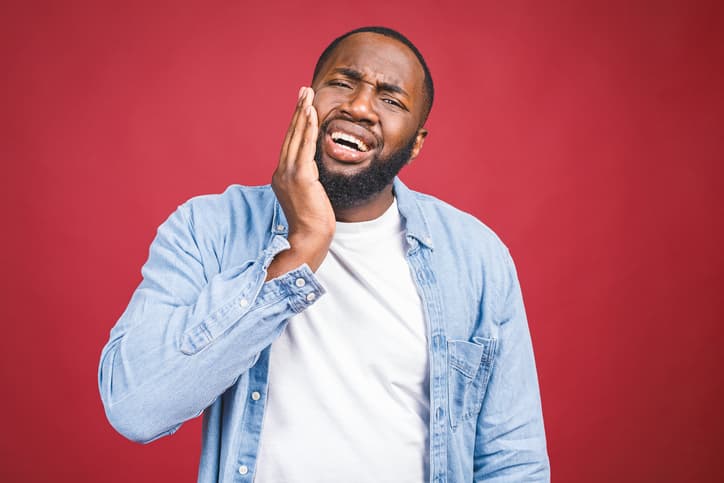 Grinding of the teeth is known as bruxism. Teeth grinding is usually done unconsciously in your sleep, but it can also occur when you are awake. During the day, a person who is concentrating on a task will often place their teeth together and apply force through a contraction of the jaw muscles. This is commonly associated with the daytime tasks of lifting heavy objects, driving, reading and writing. During sleep, it presents as clenching and rhythmic contractions.
Grinding of the teeth is known as bruxism. Teeth grinding is usually done unconsciously in your sleep, but it can also occur when you are awake. During the day, a person who is concentrating on a task will often place their teeth together and apply force through a contraction of the jaw muscles. This is commonly associated with the daytime tasks of lifting heavy objects, driving, reading and writing. During sleep, it presents as clenching and rhythmic contractions.
Teeth Grinding Symptoms
One of the more common symptoms of teeth grinding can be a headache. The Bruxism Association states that people who grind their teeth are three times more likely to suffer from headaches. According to the NHS, other symptoms can include facial pain, temporomandibular joint (TMJ) discomfort, stiffness of the shoulders and neck, ear pain and sleep disorders. Over time the teeth are adversely affected and can show abnormal wear and mobility. For some patients, the stress on their teeth can lead to fractures and loss of teeth.
Teeth Grinding Causes
Stress, anxiety, smoking, heavy alcohol consumption, caffeine, depression and sleep disorders are all possible causes of teeth grinding, also according to the Bruxism Association. There is, however, little evidence to directly support any cause.
It has been found that 70 per cent of people clench and grind their teeth as a result of stress and anxiety. Some research has shown a possible link between teeth grinding and a stressful work environment.
Treatment for Teeth Grinding
How can you stop clenching or grinding your teeth? It depends on the cause. Is it due to a sleep disorder, lifestyle factors or stress and anxiety? It is important to have your dentist evaluate you with a comprehensive exam and develop a specialised treatment plan for you.
The best way to protect your teeth and prevent tooth wear and fracture is to wear a night guard. These appliances have different names, including occlusal splints, occlusal bite guards, night guards, bite plates and bruxism appliances. These are custom-made, specially fitted plastic mouthpieces that fit over your top or bottom teeth. Wearing one of these appliances can help reduce jaw muscle pain and protect both your teeth and temporomandibular joint.
If anxiety or stress is believed to be the cause of your grinding, then behavioural management is a must. Relaxation techniques, meditation and psychoanalysis can help manage stress and anxiety. Sometimes a combination of behaviour modification and occlusal appliances is required.
Putting an end to the clenching or grinding of your teeth requires an evaluation by your dentist or by an oral and maxillofacial surgeon. After an exam, a treatment plan can be implemented. It may include an occlusal appliance and, possibly, behavioural modification methods.
